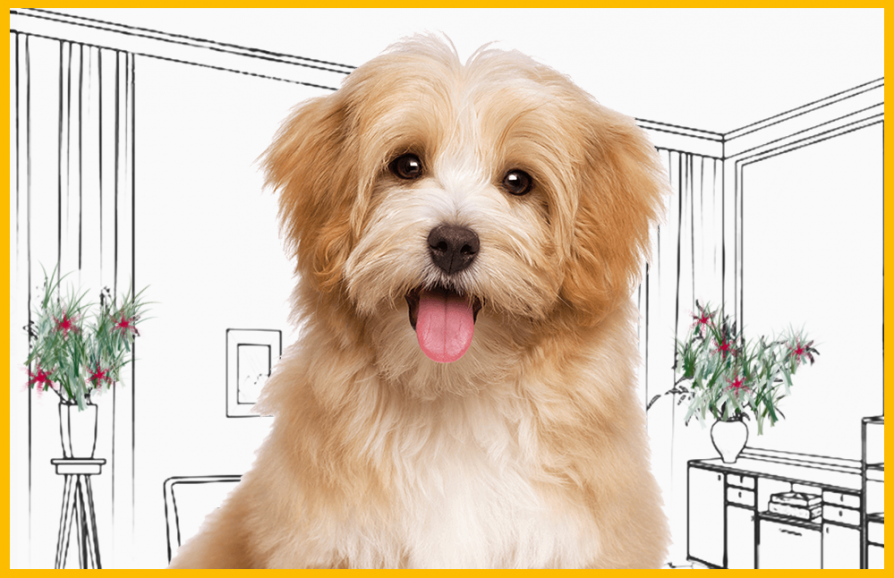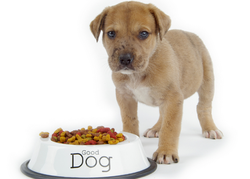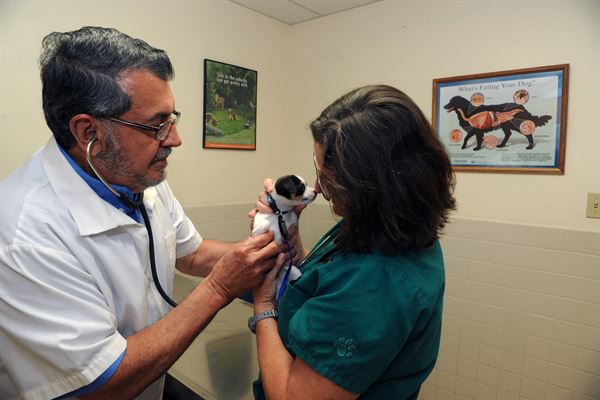Things to know before getting a dog
- September 3rd 2019

Thinking of getting a dog? We understand the appeal – dogs are incredibly loving, loyal and will transform your life with their enthusiasm. But there are factors to consider before you bring a pup home.
– Commitment
Dogs are not just pets; they are part of your family. Whether you bring a pup home or adopt a dog, you’re looking at about 10 to 15 years of being a pet owner. That means getting a dog cannot be an impulsive decision. You have to look at your life both now and in the future, and decide if you can take care of this dog in the long term. We mean choosing the right type of dog food, walks, playtime, visits to the vet, training, and a whole lot more. Dogs give a lot but they also need your attention and care, and you must be able to give that.
– Dog breed

It’s important to consider what kind of dog would best fit your lifestyle. If you’re energetic and like to go on long hikes or camping holidays, then a sporty and energetic dog breed may suit you best. If your lifestyle is more sedentary, you may want a more easy-going dog. Similarly, if you have children, you can choose a dog breed that’s known for being great with families . Also remember that you don’t have to bring a puppy home. You can adopt an adult dog that’s been abandoned or even bring home a senior dog.
– Finance
It’s important to consider if you can afford a dog. Adopting a dog is always the best choice when turning a pet parent, so you don't need to buy a puppy. That being said, there are a lot of externals you need to consider. There is food for dogs, bedding, dog toys , dog food bowls and water bowls, medicines for ticks and rashes, visits to the vet, vaccines, regular check-ups, specialist training if your dog develops anxiety or behavioral issues and needs help. Nurturing a pet is expensive, and you should make sure your bank balance can take it.
– Puppy-proofing your home

Before you get a dog, make sure you puppy-proof your home. This is essentially like baby-proofing your house, and ensures your puppy grows up in a safe environment. Here are a few things to consider when puppy-proofing your home:
·
Keep your trash secured so that
your puppy cannot get into it.
·
Ensure you have no poisonous
houseplants – dogs like to chew on plants.
·
Keep your detergents and
chemicals locked up and out of reach. It can be very dangerous if your dog
accesses them and tries to drink them.
·
Plastic bags can be dangerous
for your dog. Your pet could be playing and get their head stuck in these bags
or they could eat them. If you store plastic bags at home (as many of us do, to
reuse them), make sure this collection is out of reach. And don’t leave plastic
bags lying around.
·
Install a puppy gate on stairs
and other areas of the house where your pet is not allowed (for example, in the
kitchen while you are cooking).
· Create a space in the house that belongs just to your dog. This space can have their bed or crate and should be filled with their dog toys – a sort of island that they can retreat to when they just want to be by themselves.
– Choosing the vet
It’s important to choose your dog’s vet before you get a dog. Like a family doctor, you want someone you can trust and who comes with excellent credentials. You don’t want to change vets suddenly or hop from vet to vet while your puppy is growing; it’s best to stick with one vet so that they know your dog’s history and develop a bond with your pet. Do your research on the best vets in the city and source as many recommendations as possible from pet parents.
– Stocking the right food

It’s easy to assume that all dogs need the same nutrients and calories. But, as it is with humans, food for dogs changes as your pet grows up from puppy to adult canine. Moreover, nutrient and calorie intake depend heavily on dog breed. Make sure you stock the right dog food for your pet before bringing them home. Check if your local pet store has a variety of dog food or you can just buy your dog food online. Orijen Puppy Food is a great choice if you’re bringing home a little one, while adult dogs may need kibble crafted for an adult palette.
– Socialisation
Socialising your dog matters. A dog should know how to act around other dogs, how to share and how to play – a socialised dog is more affable and is less likely to be aggressive to people and other pets. Look up doggie cares in your areas, local dog parks, or community dog activities. In short, ensure you have a dog community that your pup can be part of.
A dog is a wonderful addition to your family and choosing to bring one home will transform your life. You should make sure that you can give this lovely pet the life they deserve – that you have the time, money and love to shower on them to make their years as fulfilling as they will make yours.
Comments
No posts found

